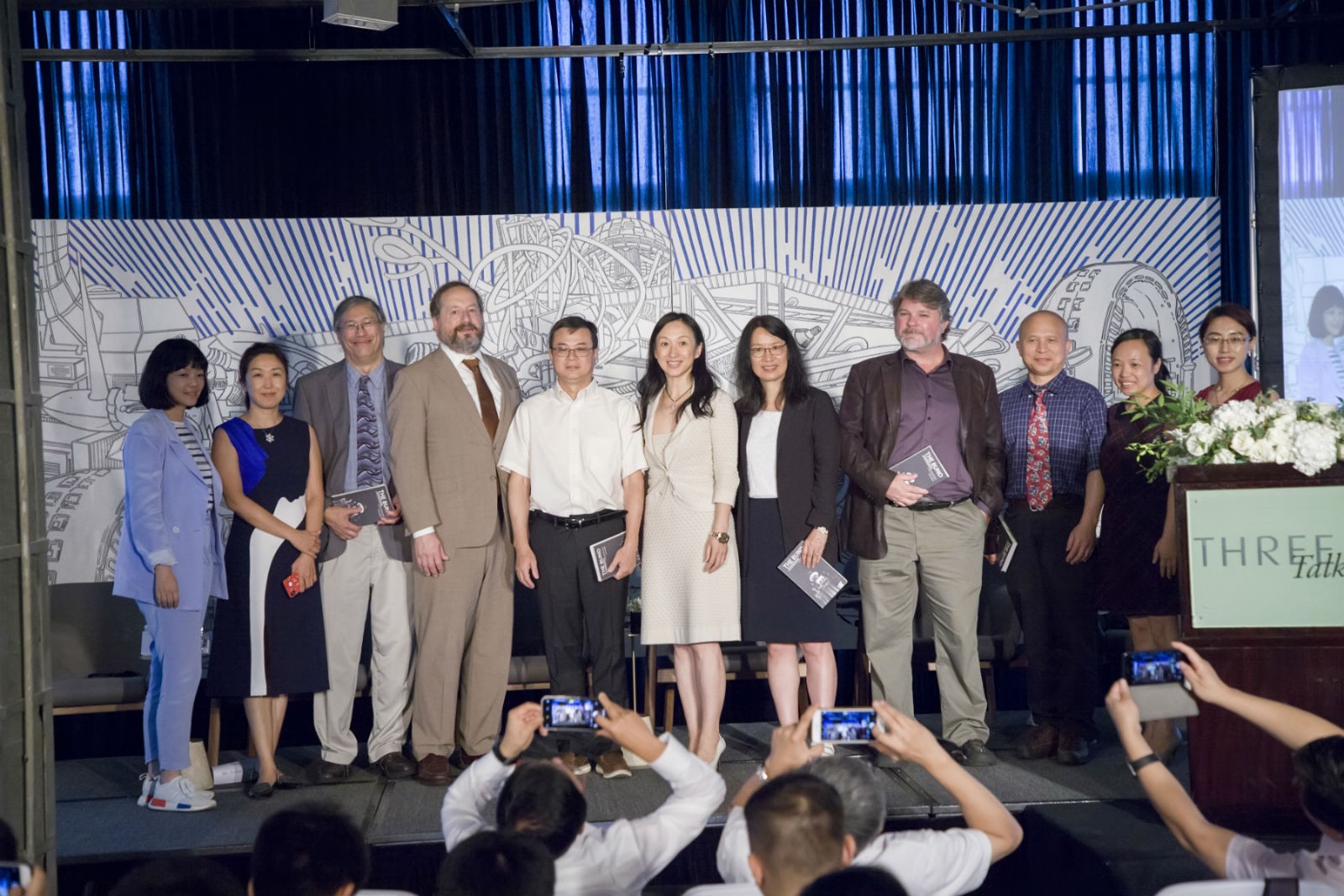Understanding the Planet: Earth Science Panel Discussion in Shanghai

On August 5, starred with Columbia Lamont–Doherty Earth Observatory (LDEO) and Center for International Earth Science Information Network (CIESIN), Columbia Global Centers | Beijing hosted a panel discussion on earth science in Shanghai.
Six panelists from LDEO and CIESIN, all leading experts in their respective fields, offered their observations on the earth, as well as insights into the connections between environmental development, data collection and humane emotions. “The point is that we are trying to understand our planet,” said Arthur Lerner-Lam, the Deputy Director and Lamont Research Professor of LDEO, Columbia University, “we are in an age of discovery.”
The discussion began with a series of individual speeches presented by all six specialists in their particularly focused fields, including current risk management in government and private sectors, climate change, urban growth and implications for agriculture in China, air pollution and public health, and sustainable urban land use and population change.
In an interview beforehand, current fruits of earth-related research, along with assumptions on consequential hazards to environmental sustainability, were also openly discussed. Professor Mingfang Ting, Associate Director and Lamont Research Professor of Ocean and Climate Physics in LDEO, suggested that by the end of this century, the record-breaking temperatures might climb even higher than 35 WBT, the human limit. “We are already past 400 ppm [in terms of CO2 level]; I think we are definitely unprecedented,” Professor Ting believed so.
Robert S. Chen, the Director and Senior Research Scientist, Center for International Earth Science Information Network, Earth Institute of Columbia University, noted that Columbia had long been actively coping with challenges in contemporary data-immersed earth science research. With the help of artificial intelligence, algorithm and other techniques, experts were striving to better utilize the figures while displaying their own talents.
“We have been doing quite a bit of work with private sector,” said Professor Chen, “but [these companies] also need to be coupled with traditional data sources in a useful way.”
China is also developing its earth science study via cross-country cooperation. LDEO and CIESIN, along with Columbia as a whole, had run collaborations with Chinese professionals in a diversity of areas. According to Professor Chen, a research based in Chongming Island in Shanghai was aimed to explore “issues related to climate change and sea level rise for major coastal urban cities like Shanghai and NYC.”
The significance of China’s role in promoting “Anthropathy”, or “the new age of geology and new age of verse development” as Professor Lerner-Lam suggested, should even get stronger in near future. “One fascinating thing about working with China is that China is essentially performing an experiment that no other country on this planet is doing. China is changing, rapidly developing, its global influence is increasing. It’s a consequence that what happens to China would essentially determine the fate of our planet,” he said.
There were over 150 attendants on the spot, including a group of excellent high school students from Junior C program at China Champions for climate change action (CTEAM), an NGO established by a dozen of Chinese entrepreneurs, including Mr. Shi Wang, the founder of Wanke.
The Paper Media conducted an interview with all panelists during the event. Click here to read the coverage.